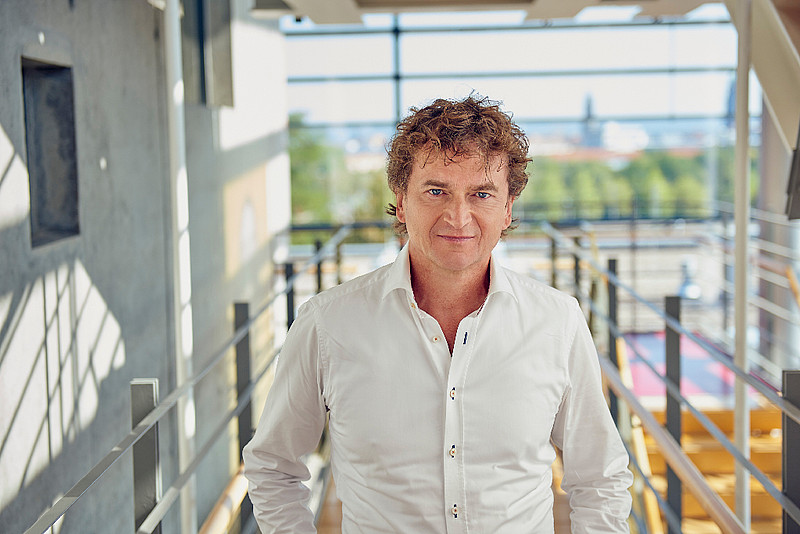
Prof. Jens-Uwe Sommer © Leibniz Institute of Polymer Research Dresden
The German Research Foundation (DFG) has approved a new research training group at the Dresden University of Technology (TUD) with the title RTG 3120 “Biomolecular Condensates: From Physics to Biological Functions.” Starting in 2026, and with a budget of around €7 million for a period of five years, researchers will focus on a cutting-edge topic at the interface of physics, biology, and polymer research.
The new research training group will focus on so-called biomolecular condensates – membrane-less structures within living cells that play a central role in the spatial and temporal organization of biological processes. This emerging field of research holds great promise for uncovering fundamental principles of life. In particular, the GRK 3120 aims to investigate how phase transitions and collective interactions among biopolymers contribute to the formation and function of biomolecular condensates. In the long term, these insights may also inspire advances in medicine — for example, by deepening our understanding of neurodegenerative diseases.
RTG 3120 will integrate a broad spectrum of experimental and theoretical approaches across the Dresden research landscape to understand, predict, and precisely control the physics and biological functions of condensates. Furthermore, their specific role in diseases will be investigated, and their potential for innovative therapeutic strategies explored. To achieve these goals, the research group brings together a consortium of outstanding partners: In addition to TUD, the Leibniz Institute for Polymer Research (IPF), the Max Planck Institute for Molecular Cell Biology and Genetics (MPI-CBG), and the Helmholtz Center Dresden-Rossendorf (HZDR) are also involved.
A central question is: How do proteins and other biological macromolecules cooperate to carry out biological functions at the right time and in the right place? RTG 3120 supports doctoral researchers who are passionate about interdisciplinary science at the interface of biology, physics, and polymer research, and who are eager to push the boundaries of knowledge with curiosity and creativity. Dresden offers a uniquely fertile environment for this endeavor, since it was here that research on biomolecular condensates first emerged: Anthony Hyman (MPI-CBG), Clifford Brangwynne (Princeton University and Howard Hughes Medical Institute), and Frank Jülicher (MPI for the Physics of Complex Systems) discovered the completely new physical principle of biomolecular condensates, which condense cellular interactions between proteins and other biomolecules without the presence of membranes. As a result, Dresden developed a vibrant scientific network spanning cell biology, biochemistry, polymer science, and physics.
RTG spokesperson Jens-Uwe Sommer, Professor of Polymer Theory at TUD and Division Director at the Leibniz Institute for Polymer Research Dresden, explains: "By investigating collective phenomena at the interface of biology, biological physics and polymer physics, we aim to contribute to a new foundation for understanding living matter—and at the same time create an inspiring interdisciplinary environment for the next generation of excellent researchers."
Press release from the TU Dresden